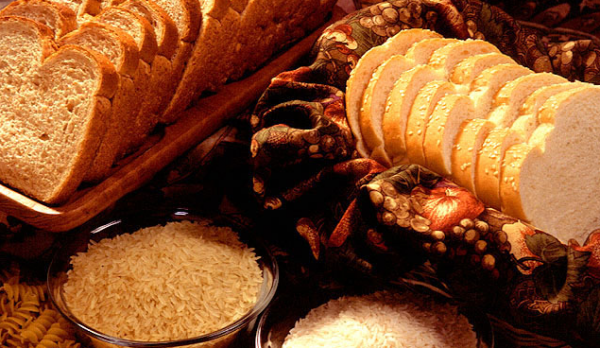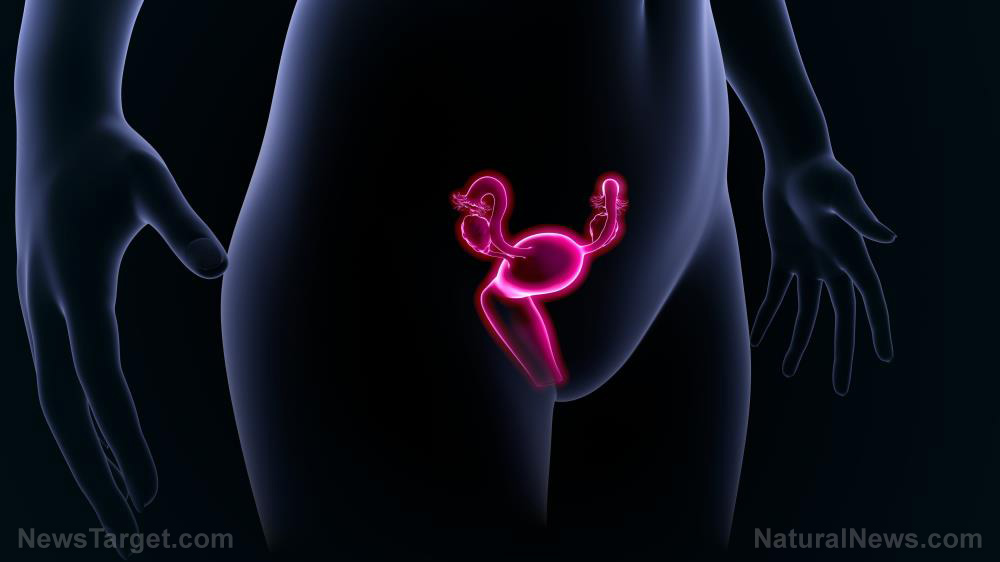 Parler
Parler Gab
Gab
- Choose carbs with at least 4g fiber/serving, prioritizing unrefined sources.
- Refined carbs spike blood sugar faster than whole grains or legumes.
- Pair fruit with fat or protein to moderate sugar absorption.
- Avoid foods listing high-fructose corn syrup or excessive added sugars.
- Dietary guidelines may soon address low-carb diets, backed by science on fiber-rich plant foods.
The fiber-fueled shift in carb choices
Fiber’s role in slowing sugar absorption is central to this new understanding of healthy carbs. “Fiber isn’t just filler,” explains Lourdes Castro, a registered dietitian at NYU’s Food Lab. “It acts like a ‘knotted mess’ in food, forcing the body to work harder. This creates slower sugar release, stabilizes blood sugar and reduces hunger.” Castro recommends a simple guideline: divide total carbohydrates by fiber content. A ratio of less than five ensures the food contains sufficient fiber relative to its carb load. For instance, a slice of whole-grain bread with 20g carbs and 5g fiber (ratio 4:1) is superior to white bread (20g carbs/1g fiber = 20:1). This strategy aligns with recent studies linking whole grains and fiber-rich diets to reduced obesity and chronic disease risk. A 2023 British Medical Journal analysis found that refined grains like instant oatmeal were tied to weight gain, while whole grains correlated with stable or lower weight.Processing’s hidden impact on health
The texture and preparation of carbs also determine their metabolic footprint. “A healthy carb is one that works your body’s machinery—the enzymes in saliva and gut bacteria — to break it down,” says Anayanci Masis-Vargas, a neuroscientist-nutritionist. Consider cooking methods:- Instant oats (pre-ground) digest quickly, leading to sharp sugar spikes, while rolled oats require longer chewing and cooking, delaying absorption.
- Hot rice releases glucose rapidly, but cooling and reheating converts some starch to a “resistant” form that the body digests slowly.
Nature’s sugars and modern diets
Fruit’s vilification in some diets overlooks its metabolic advantages. While apples and bananas contain fructose, Castro notes their packaging matters: “The fiber and water in fruit moderate sugar release. An apple’s carb impact differs wildly from a juice, which strips fiber and concentrates sugar.” Masis-Vargas adds that modern farming has amplified fruit’s sweetness. “Wild berries had lower sugar than today’s cultivated varieties,” she says, urging consumers to treat fruit as “complex carbs” and pair it with fat (e.g., yogurt) for added balance.Cooking and combining for better carbs
To decode carb quality, experts urge shoppers to scrutinize ingredient lists, not just nutrition labels. “A long list of additives indicates ultra-processing,” Castro warns. “Opt for whole foods: fresh produce, legumes and grains.” Castro also advocates for a daily fiber goal of 40-50 grams from natural sources — a target achievable only with unrefined foods — and encourages experimentation. “Try overnight oats instead of instant; skip chips for roasted chickpeas,” she suggests. “Your gut — and blood sugar — will thank you.”From carbophobia to rational choices
Carb narratives have swung between extremes. By the 1990s, low-fat diets flooded the market, with refined carbs like sugary cereals masquerading as “healthy.” Decades later, wellness culture latched onto keto trends, amplifying carb fear. Now, data-driven advice is pushing a middle ground. “Carbs’ role in underpinning brain function and energy is irreplaceable,” Masis-Vargas stresses. “Avoiding them entirely means missing fiber’s gut benefits and vitamins like B and K.”Reimagining the plate, one carb at a time
The science is clear: Carbohydrates are neither enemy nor salvation. Their value hinges on their form and context. By prioritizing fiber, respecting food’s natural packaging and avoiding ultra-processing, individuals can align their diets with centuries of human physiology. As labels evolve — highlighting added sugars and trans fats — the path to better carb choices grows clearer. Sources for this article include: TheEpochTimes.com MayoClinic.org Piedmont.orgBy Lance D Johnson // Share
Dragon fruit: A vibrant superfood packed with nutrients and health benefits
By Laura Harris // Share
STUDY: Sleeping early is key to a more active lifestyle
By Ava Grace // Share
A holistic approach to health: “The Canadian Encyclopedia of Natural Medicine” by Sherry Torkos
By Ramon Tomey // Share
The world’s health, the people’s choice: U.S. rejects WHO amendments to protect liberty
By Willow Tohi // Share
Governments continue to obscure COVID-19 vaccine data amid rising concerns over excess deaths
By patricklewis // Share
Tech giant Microsoft backs EXTINCTION with its support of carbon capture programs
By ramontomeydw // Share
Germany to resume arms exports to Israel despite repeated ceasefire violations
By isabelle // Share










